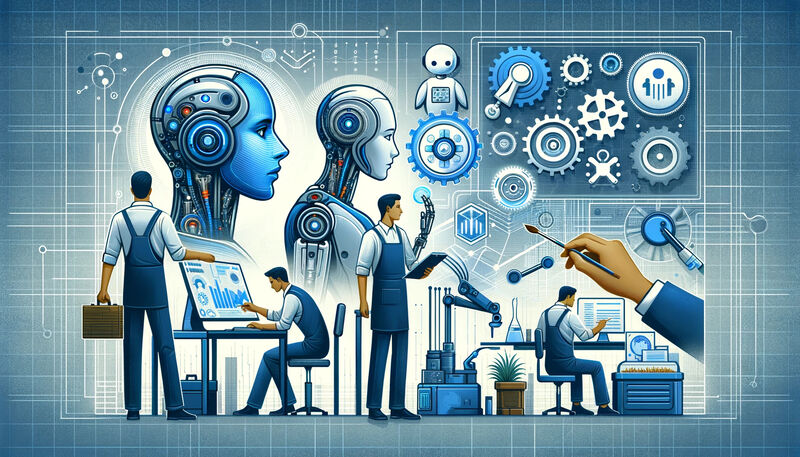The Impact of Artificial Intelligence on Job Automation

As artificial intelligence (AI) continues to evolve, its influence on job automation is becoming increasingly profound. From manufacturing to customer service, AI technologies are transforming the workplace, creating efficiencies, and shifting the nature of work. This article explores the impact of AI on job automation, the industries most affected, and the potential implications for the global workforce.
AI and Job Automation: A Growing Trend
AI-driven automation involves using intelligent algorithms to perform tasks traditionally done by humans. This shift is not just about replacing manual labor with robots; it's also about enhancing capabilities in sectors like finance, healthcare, and education through advanced data analysis and decision-making processes.
Industries at the Forefront
1. Manufacturing: Robotics and AI have revolutionized production lines, increasing speed, and precision while reducing costs.
2. Retail: Automated checkouts and AI-driven inventory management systems are changing the face of retail.
3. Healthcare: AI is used for diagnostic assistance, patient management, and personalized medicine, reshaping patient care.
4. Finance: Algorithms perform stock trading, fraud detection, and customer service operations, significantly impacting the sector.
Benefits of AI-Driven Automation
AI automation offers numerous advantages, including increased efficiency, lower error rates, and the capacity to analyze large datasets quickly. These benefits can lead to cost savings for businesses and improved services for consumers.
Challenges and Concerns
However, the rise of AI automation also brings challenges. The most significant is the displacement of jobs, with many roles becoming obsolete as machines take over tasks. This shift creates a need for workforce reskilling and poses questions about employment opportunities in the future.
Future Outlook
The future landscape of work will likely include a hybrid approach where AI enhances human capabilities rather than replaces them entirely. Education systems and training programs will need to adapt to prepare the workforce for a more AI-integrated world.
The impact of AI on job automation is a complex but inevitable evolution in the global job market. While it offers considerable growth and innovation opportunities, it also necessitates thoughtful management to mitigate adverse effects on employment. As AI continues to advance, the dialogue between technology leaders, policymakers, and educators will be crucial in shaping a future where technology and humanity successfully coexist

